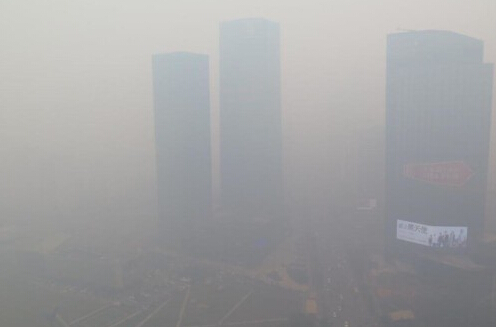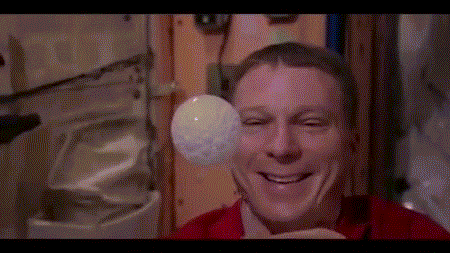新浪教育(微博)讯 2015年12月19日全国大学英语六级考试已结束,本次考试为多题多卷,新浪外语第一时间收集整理不同版本试题,供考生参考,以下是2015年12月大学英语六级听力答案(新东方&新东方在线(微博)版):
As it is, sleep is so undervalued that getting by on fewer hours has become a badge o? Plus, we live in a culture that 36 to the late –nighter, from 24-hourgrocery store to ? shopping site that never close。 It’s no surprise, then, that more than half of American adults get the 7 to 9 hours of shut-eye every night as 37 by sleep experts。
Whether or not we can catch up on sleep – on the weekend, say- is a hotly 38 among sleep researchers。 The latest evidence suggests that while it isn’t 39 , it might ? when Liu, the UCLA sleep researcher and professor of medicine, brought 40 sleep-rest people into the lab for a weekend of sleep during which they lagged about 10 hours per night。 ? showed 41 in the ability of insulin(胰岛素) to process blood sugar。 That suggests ? up sleep may undo some but not all of the damage that sleep 42 causes, which is encouraging ? given how many adults don’t get the hours they need each night。 Still, Liu isn’t 43 to end the habit of sleeping less and making up for it later。
Sleeping pills, while helpful for some, are not 44 an effective remedy either。 “A sleeping pill will 45 one area of the brain, but there’s never going to be a perfect sleeping pill, because you couldn’t really replicate (复制)the different chemicals moving in and out of different parts ? the brain to go through the different stages of sleep,” says Dr。 Nancy Collop, director of the Em? University Sleep Center。
A) alternatively I) negotiated
B) caters J) pierce
C) chronically K) presumption
D) debated L) ready
E) deprivation M) recommended
F) ideal N) surpasses
G) improvements O) target
H) necessarily
答案:BMDFO GELHJ
Climate change may be real, but it’s still not easy being green
How do we convince our inner caveman to be greener?We ask some outstanding social scientists。
A) The road to climate hell is paved with our good intentions。 Politicians may tackle polluters while scientists do battle with carbon emissions。 But the most pervasive problem is less obvious: our own behaviour。 We get distracted before we can turn down the heating。 We break our promise not to fly after hearing about a neighbor’s rip to India。 Ultimately, we can’t be bothered to change our attitude。 Fortunately for the planet, social science and behavioral economics may be able to do that for us。
B) Despite mournful polar bears and carts showing carbon emissions soaring, mot people find it hard to believe that global warming will affect them personally。 Recent polls by the Pew Research Centre in Washington, DC, found that 75-80 per cent of participants regarded climate change as an important issue。 But respondents ranked it last on a list of priorities。
C) This inconsistency largely stems from a feeling of powerlessness。 “When we can’t actually remove the source of our fear, we tend to adapt psychologically by adopting a range of defense mechanisms,” says Tom Crompton, change strategist for the environmental organization World Wide Fund for Nature。
D) Part of the fault lies with our inner caveman。 Evolution has programmed humans to pay most attention to issues that will have an immediate impact。 “We worry most about now because if we don’t survive for the next minute, we’re not going to be around in ten years’ time,” says Professor Elke Weber of the Centre for Research on Environmental Decisions at Columbia University in New York。 If the Thames were lapping around Big Ben, Londoners would face up to the problem of emissions pretty quickly。 But in practice, our brain discounts the risks—and benefits—associated with issues that lie some way ahead。
E) Matthew Rushworth, of the Department of Experimental Psychology at the University of Oxford, sees this in his lab every day。 “One of the ways in which all agents seem to make decisions is that they assign a lower weighting to outcomes that are going to be further away in the future,” he says。 “This is a very sensible way for an animal to make decisions in the wild and would have been very helpful for humans for thousands of years。”
F) Not any longer。 By the time we wake up to the threat posed by climate change, it could well be too late。 And if we’re not going to make national decisions about the future, others may have to help us to do so。
G) Few political libraries are without a copy of Nudge: Improving Decisions About Health, Wealth and Happiness, by Richard Thaler and Cass Sunstein。 They argue that governments should persuade us into making better decisions—such as saving more in our pension plans—by changing the default options。 Professor Weber believes that environmental policy can make use of similar tactics。 If, for example, building codes included green construction guidelines, most developers would be too lazy to challenge them。
H) Defaults are certainly part of the solution。 But social scientists are most concerned about crafting messages that exploit our group mentality(心态)。 ”We need to understand what motivates people, what it is that allows them to make change,” says Professor Neil Adger, of the Tyndall Centre for Climate Change Research in Norwich。 ”It is actually about what their peers think of them, what their social norms are, what is seen as desirable in society。” In other words, our inner caveman is continually looking over his shoulder to see what the rest of the tribe are up to。
I) The passive attitude we have to climate change as individuals can be altered by counting us in—and measuring us against—our peer group。 “Social norms are primitive and elemental,” says Dr。 Robert Cialdini, author of Influence: The Psychology of Persuasion。 “Birds flock together, fish school together, cattle herd together … just perceiving norms is enough to cause people to adjust their behavior in the direction of the crowd。”
J) These norms can take us beyond good intentions。 Cialdini conducted a study in San Diego in which coat hangers bearing messages about saving energy were hung on people’s doors。 Some of the messages mentioned the environment, some financial savings, others social responsibility。 But it was the one that mentioned the actions of neighbours that drove down power use。
K) Other studies show that simply providing the facility for people to compare their energy use with the local average is enough to cause them to modify their behaviour。 The Conservatives plan to adopt this strategy by making utility companies print the average local electricity and gas usage on people’s bills。
L) Social science can also teach politicians how to avoid our collective capacity for self-destructive behaviour。 Environmental campaigns that tell us how many people drive SUVs unwittingly (不经意地) imply that this behaviour is widespread and thus permissible。 Cialdini recommends some careful framing of the message。 “Instead of normalising the undesirable behaviour, the message needs to marginalise it, for example, by stating that if even one person buys yet another SUV, it reduces our ability to be energy-independent。”
M) Tapping into how we already see ourselves is crucial。 The most successful environmental strategy will marry the green message to our own sense of identity。 Take your average trade union member, chances are they will be politically motivated and be used to collective action—much like Erica Gregory。 A retired member of the Public and Commercial Services Union, she is setting up one of 1,100 action groups with the support of Climate Solidarity, a two-year environmental campaign aimed at trade unionists。
N) Erica is proof that a great-grandmother can help to lead the revolution if your get the psychology right—in this case, by matching her enthusiasm for the environment with a fondness for organising groups。 “I think there must be something in it。” She is expecting up to 20 people at the first meeting she has called, at her local pub in the Cornish village of Polperro。
O) Nick Perks, project director for Climate Solidarity, believes this sort of activity is where the future of environmental action lies。 “Using existing civil society structures or networks is a more effective way of creating change … and obviously trade unions are one of the biggest civil society networks in the UK,” he says。 The “Love Food, Haste Waste” campaign entered into a collaboration last year with another such network—the Women’s Institute。 Londoner Rachel Talor joined the campaign with the aim of making new friends。 A year on, the meetings have made lasting changes to what she throws away in her kitchen。 “It’s always more of an incentive if you’re doing it with other people,” she says。 “It motivates you more if you know that you’ve got to provide feedback to a group。”
P) The power of such simple psychology in fighting climate change is attracting attention across the political establishment。 In the US, the House of Representatives Science Committee has approved a bill allocating $10 million a year to studying energy-related behaviour。 In the UK, new studies are in development and social scientists are regularly spotted in British government offices。 With the help of psychologists, there is fresh hope that we might go green after all。
46。 When people find they are powerless to change a situation, they tend to live with it。
47。 To be effective, environmental messages should be carefully framed。
48。 It is the government’s responsibility to persuade people into making environment-friendly decisions。
49。 Politicians are beginning to realize the importance of enlisting psychologists’ help in fighting climate change。
50。 To find effective solutions to climate change, it is necessary to understand what motivates people to make change。
51。 In their evolution, humans have learned to pay attention to the most urgent issues instead of long-term concerns。
52。 One study shows that our neighbors’ actions are influential unchanging our behavior。
53。 Despite clear signs of global warming, it is not easy for most people to believe climate change will affect their own lives。
54.We would take our future into consideration in making decisions concerning climate change before it is too late。
55。 Existing social networks can be more effective in creating change in people’s behaviour。
答案:CLGPH DJBFO
Passage One
More than a decade ago, cognitive scientists John Bransford and Daniel Schwartz, both then at Vanderbilt University, found that what distinguished young adults from children was not the ability to retain facts or apply prior knowledge to a new situation but a quality they called “preparation for future learning。” The researchers asked fifth graders and college students to create a recovery plan to protect bald eagles from extinction。 Shockingly, the two groups came up with plans of similar quality( although the college students had better spelling skills)。 From the standpoint of a traditional educator, this outcome indicated that schooling and failed to help students think about ecosystems and extinction, major scientific ideas。
The researchers decided to go deeper, however。 They asked both groups to generate questions about important issues need to create recovery plans。 On this task, they found large differences。 College students focused on critical issues of interdependence between eagles and their habitats(栖息地)。 Fifth graders tended to focus on features of individual eagles(“How big are they?” and “What do they eat?”)。 The college students had cultivated the ability to ask questions, the cornerstone of critical thinking。 They had learned how to learn。
Museums and other institutions of informal learning may be better suited to teach this skill than elementary and secondary schools。 At the Exploratorium in San Francisco, we recently studied how learning to ask good questions can affect the quality of people’s scientific inquiry。 We found that when we taught participants to ask “What if?” and “How can?” questions that nobody present would know the answer to and that would spark exploration, they engaged in better inquiry at the next exhibit —asking more questions, performing more experiments and making better interpretations of their results。 Specifically, their questions became more comprehensive at the new exhibit。 Rather than merely asking about something they wanted to try, they tended to include both cause and effect in their question。 Asking juicy questions appears to be a transferable skill for deepening collaborative inquiry into the science content found in exhibits。
This type of learning is not confined to museums or institutional settings。 Informal learning environments tolerate failure better than schools。 Perhaps many teachers have too little time to allow students to form and pursue their own questions and too much ground to cover in the curriculum。 But people must acquire this skill somewhere。 Our society depends on them being able to make critical decisions about their own medical treatment, say, or what we must do about global energy needs and demands。 For that, we have a robust informal learning system that gives no grades, takes all comers, and is available even on holidays and weekends。
56。 What is traditional educators’ interpretation of the research outcome mentioned in the first paragraph?
A) Students are not able to apply prior knowledge to new problems。
B) College students are no better than fifth grader in memorizing facts。
C) Education has not paid enough attention to major environmental issues。
D) Education has failed to lead students to think about major scientific ideas。
57。 In what way are college students different from children?
A) They have learned to think critically。
B) They are concerned about social issues。
C) They are curious about specific features。
D) They have learned to work independently。
58。 What is the benefit of asking questions with no ready answers?
A) It arouses students’ interest in things around them。
B) It cultivates students’ ability to make scientific inquiries。
C) It trains students’ ability to design scientific experiments。
D) It helps students realize not every question has an answer。
59。 What is said to be the advantage of informal learning?
A) It allows for failures。
B) It charges no tuition。
C) It is entertaining。
D) It meets practical needs。
60。 What does the author seem to encourage educators to do at the end of the passage?
A) Train students to think about global issues。
B) Design more interactive classroom activities。
C) Make full use of informal learning resources。
D) Include collaborative inquiry in the curriculum
Passage Two
“There’s an old saying in the space world: amateurs talk about technology, professionals talk about insurance。” In an interview last year with The Economist, George Whitesides, chief executive of space-tourism firm Virgin Galactic, was placing his company in the latter category。 But insurance will be cold comfort following the failure on October 31st of VSS Enterprise, resulting in the death of one pilot and the severe injury to another。
On top of the tragic loss of life, the accident in California will cast a long shadow over the future of space tourism, even before it has properly begun。
The notion of space tourism took hold in 2001 with a &29million flight aboard a Russian spacecraft by Dennis Tito, a millionaire engineer with an adventurous streak。 Just half a dozen holiday-makers have reached orbit since then, for similarly astronomical price tags。 But more recently, companies have begun to plan more affordable “suborbital” flights—briefer ventures just to the edge of space’s vast darkness。 Virgin Galactic had, prior to this week’s accident, seemed closet to starting regular flights。 The company has already taken deposits from around 800 would be space tourists, including Stephen Hawking。
After being dogged by technical delays for years, Sir Richard Branson, Virgin Galactic’s founder, had recently suggested that a SpaceShipTwo craft would carry its first paying customers as soon as February 2015。 That now seems an impossible timeline。 In July, a sister craft of the crashed spaceplane was reported to be about half-finished。 The other half will have to wait, as authorities of America’s Federal Aviation Administration(FAA) and National Transportation Safety Board work out what went wrong。
In the meantime, the entire space tourism industry will be on tenterhooks(坐立不安)。 The 2004 Commercial Space Launch Amendments Act, intended to encourage private space vehicles and services, prohibits the transportation secretary (and thereby the FAA) from regulating the design or operation of private spacecraft, unless they have resulted in a serious or fatal injury to crew or passengers。 That means that the FAA could suspend Virgin Galactic’s license to fly。 It could also insist on checking private manned spacecraft as thoroughly as it does commercial aircraft。; While that may make suborbital travel safer, it would add significant cost and complexity to an emerging industry that has until now operated largely as the playground of billionaires and dreamy engineers.How Virgin Glactic, regulators and the public respond to this most recent tragedy will determine whether and how soon private space travel can transcend that playground。 There is no doubt that spaceflight entails risks, and to pioneer a new mode of travel is to face those risks, and to reduce them with the benefit of hard-won experience。
61。 What is said about the failure of VSS Enterprise?
A) It may lead to the bankruptcy of Virgin Galactic。
B) It has a strong negative impact on space tourism。
C) It may discourage rich people from space travel。
D) It has aroused public attention to safety issues。
62。 What do we learn about the space-tourism firm Virgin Galactic?
A) It has just built a craft for commercial flights。
B) It has sent half a dozen passengers into space。
C) It was about ready to start regular business。
D) It is the first to launch “suborbital” flights。
63。 What is the purpose of the 2004 Commercial Space Launch Amendments Act?
A) To ensure space travel safety。
B) To limit the FAA’s functions。
C) To legalize private space explorations。
D) To promote the space tourism industry。
64。 What might the FAA do after the recent accident in California?
A) Impose more rigid safety standards。
B) Stop certifying new space-tourist agencies。
C) Amend its 2004 Commercial Space Launch Amendments Act
D) Suspend Virgin Galactic’s license to take passengers into space。
65。 What does the author think of private space travel?
A) It is worth promoting despite the risks involved。
B) It should not be confined to the rich only。
C) It should be strictly regulated。
D) It is too risky to carry on。
答案:DABAC BCDDA










































































































